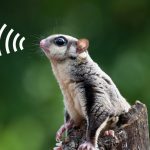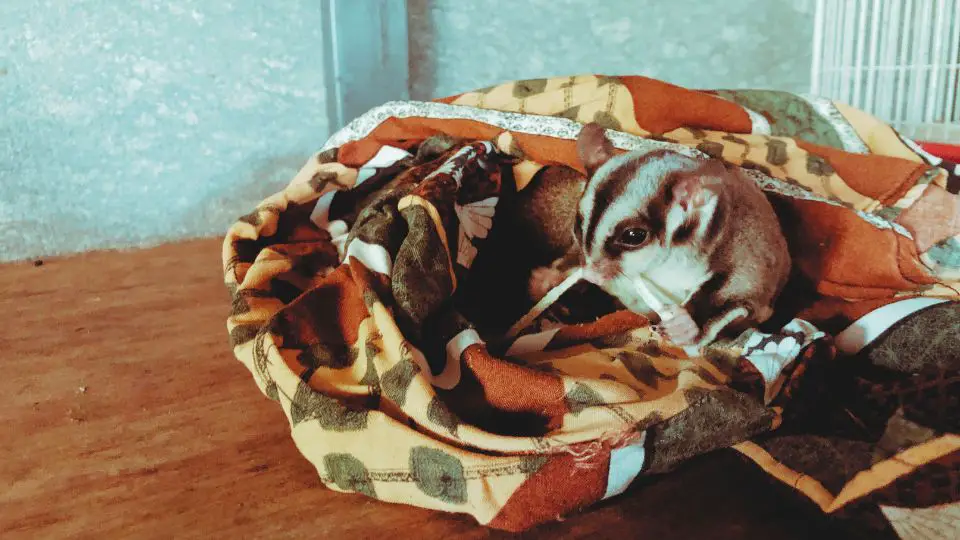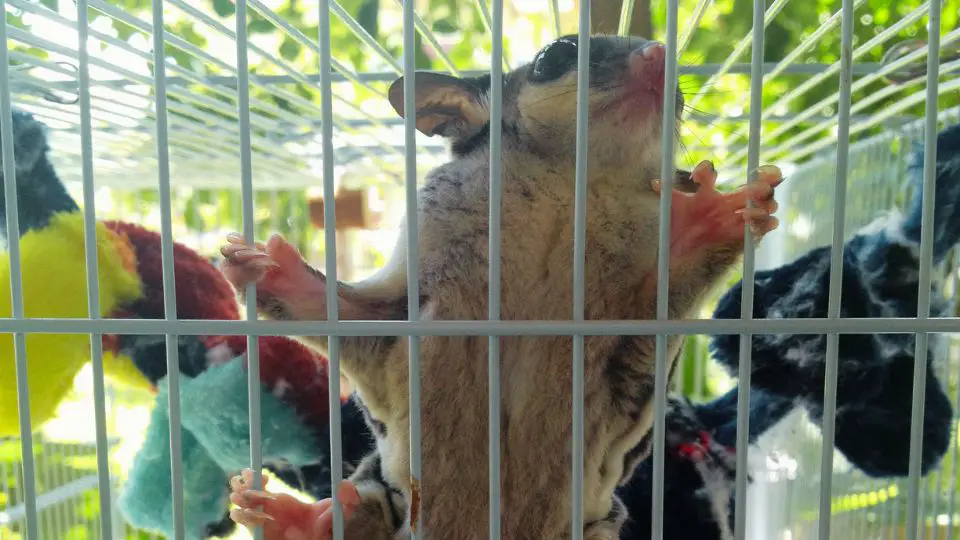Do sugar gliders have rabies? This may be a question that you’re asking yourself if you’re thinking about adding a sugar glider to your family.
If you want to get any exotic pet you should know that rabies is a serious disease, and it’s important to know whether or not the pet could potentially spread it. But when it comes to sugar gliders, you should not be worried: sugar gliders don’t carry rabies.
In this blog post, we’ll take a look at the answer to that question and what other diseases sugar gliders are prone to.
Do sugar gliders have rabies
Sugar gliders are adorable little animals that have become popular pets in recent years. Though they may look like flying squirrels, sugar gliders are actually marsupials, and hail from Australia.
These friendly creatures are relatively easy to care for, but there is one important thing to note: they do not require any vaccinations. That’s right – sugar gliders do not carry rabies, heartworms, or anything else like that.
So there’s no need to worry about getting them vaccinated. Just provide them with a good diet, a comfortable home, and plenty of love and attention, and your sugar glider will be happy and healthy.
Are sugar gliders safe pets?
Sugar gliders are safe pets because they do not carry diseases that can be transmitted to humans. They also do not produce allergens, making them a good choice for people with allergies.
In addition, sugar gliders are very social creatures and enjoy living in groups. As a result, they can make great companions for both children and adults. If you’re looking for a unique pet that is low-maintenance and enjoyable to be around, a sugar glider may be the perfect choice for you.
Do sugar gliders make good pets?
Sugar gliders have become popular pets in recent years, but there is debate about whether or not they make good pets. Some people argue that sugar gliders are high-maintenance animals that require a lot of care and attention.
Others contend that sugar gliders can bond closely with their owners and make affectionate pets. Ultimately, whether or not a sugar glider is a good pet depends on the individual owner’s ability to provide the animal with the care it needs.
Do sugar gliders carry diseases?
Sugar gliders are prone to many infectious and neoplastic diseases recognized in mammals, including dental abscesses, toxoplasmosis, and hepatocellular carcinoma.
Sugar gliders do not typically transmit these diseases to humans and with proper care and regular vet check-ups, sugar gliders can make be healthy and don’t take any disease. However, one of the most common diseases that sugar gliders carry and pass to humans is leptospirosis, which is caused by bacteria known as Leptospira.
If a sugar glider comes into contact with contaminated water or food, they can become infected with this disease and pass it to humans. Signs of leptospirosis in humans include fever and kidney and liver problems.
If you suspect your sugar glider may have this disease, it’s important to take them to a veterinarian as soon as possible so they can be tested for the presence of Leptospira bacteria. With prompt treatment, leptospirosis is usually curable. If left untreated, this disease can be fatal.
What happens if a sugar glider bites you?
If you’ve ever been nipped by a sugar glider, you know that it hurts! But what exactly happens when a sugar glider bites you?
First, it’s important to know that sugar gliders are not trying to hurt you when they bite. Sugar gliders are naturally curious creatures, and they may bite simply out of curiosity or because they’re feeling threatened. It’s also important to know that sugar gliders have very sharp teeth. While their bite might not be dangerous, it can certainly break the skin and cause bleeding.
If you are bitten by a sugar glider, the first thing you should do is wash the wound with soap and water. This will help to prevent infection. You may also want to apply a bandage to the wound. If the bleeding is severe, or if you experience any other symptoms such as swelling or redness, it’s important to seek medical attention but, in most cases, however, sugar glider bites are nothing to worry about.
Sugar gliders have small mouths and sharp teeth, so their bites usually only break the skin. In rare cases, however, a sugar glider’s teeth may penetrate deeper, causing bleeding and swelling. If you’re worried about being bitten by your sugar glider, there are some things you can do to reduce the risk.
First, make sure that your sugar glider always has a safe place to retreat to when they feel threatened. Second, try to avoid handling them when they’re feeling stressed or agitated. By taking these precautions, you can help keep your sugar glider happy and healthy – and minimize the risk of being on the receiving end of one of their bites.
Diseases and Syndromes of Sugar Gliders
Bacterial Diseases
Leptospirosis is a bacterial disease that sugar gliders can carry and pass to humans. If a sugar glider comes into contact with contaminated water or food, they can become infected with this disease and pass it to humans. Signs of leptospirosis in humans include fever and kidney and liver problems.
Parasitic Diseases
Toxoplasmosis is a parasitic disease that sugar gliders can carry and pass to humans. If a sugar glider comes into contact with contaminated water or food, they can become infected with this disease and pass it to humans. Symptoms of toxoplasmosis in humans include fever, muscle aches, and headaches.
Nutritional Osteodystrophy
Nutritional Osteodystrophy is a disease that can occur in sugar gliders when they don’t have enough of the right nutrients in their diet. This disease can cause bone deformities, joint problems, and muscle weakness.
Dental Disease
Sugar gliders are prone to dental disease because of their diet. They eat a lot of sugar, which can lead to cavities and other problems with their teeth.
Dental disease is a common problem in sugar gliders, and it can be serious if not treated. Sugar gliders with dental disease may have bad breath, trouble eating, and weight loss.
Conclusion
In conclusion, it’s important to be aware of the potential diseases and syndromes that sugar gliders can carry. While most of these conditions can be treated, some can be serious if left untreated. It’s important to seek medical attention if you think your sugar glider may be sick. By taking these precautions, you can help keep your sugar glider happy and healthy.







